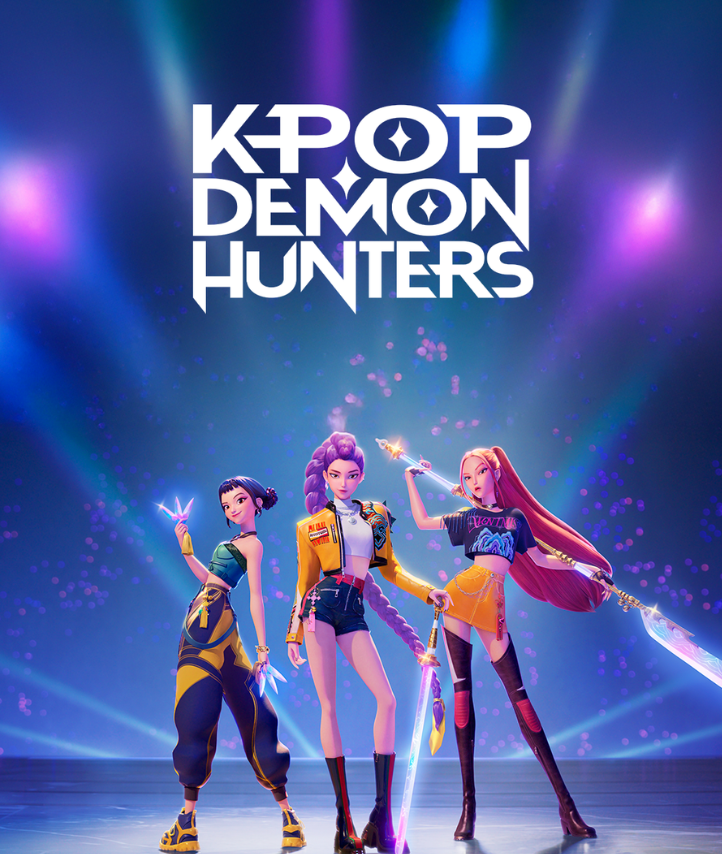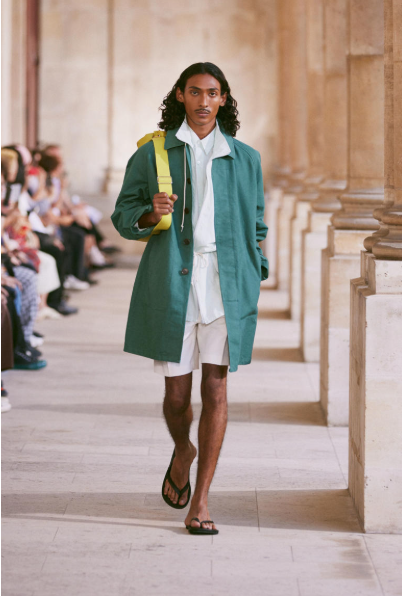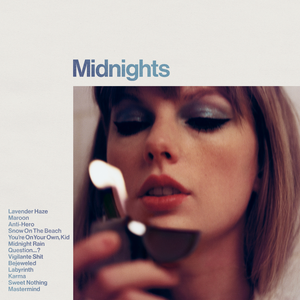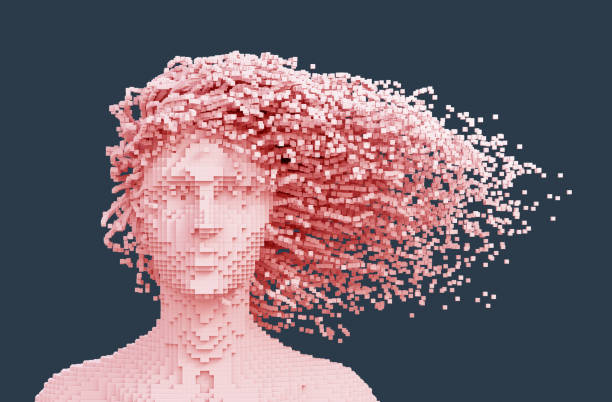From record-breaking songs to female empowerment, it is no wonder that K-pop Demon Hunters is a global sensation. K-pop Demon Hunters is an animated film that spotlights both Korean pop culture and its traditional mythology. It has been influenced by the intricate and dynamic nature of anime and the character archetypes from K-dramas. However, at its core, it’s a celebration of K-pop culture. But how does this play into the story?
K-pop Demon Hunters tells the story of Huntr/x, a Korean girl group that performs K-pop songs, defeats demons, and seals the “honmoon”, which protects their fantastical world from Gwi-ma, the main villain of the story. Their archenemy, a demon boy band called the Saja Boys, seeks to steal Huntr/x’s fans, thereby taking over the world. Because of this rivalry, the two bands compete to produce catchy songs.
Surprisingly, these tunes from fictional K-pop groups are surpassing records and beating out real K-pop artists! One song, “Your Idol”, topped the U.S. Spotify Chart, outshining BTS as the highest charting male K-pop group. Likewise, “Golden” by Huntr/x quickly shot up to number one, overshadowing Blackpink’s record as well as the Saja Boys, just like in the movie! Through vibrant visuals, unforgettable melodies, and captivating lyrics, the songs from K-pop Demon Hunters have stolen the hearts of kids and adults alike.
K-pop Demon Hunters is not only memorable for its soundtrack, but is an excellent representation of female empowerment in modern media. While other movies feature forced “perfection” in female leads, the main trio of Huntr/x thrive in authenticity. They realize their flaws and insecurities, but still embrace their beauty and strength. They come to realize that both can co-exist, and instead of putting up a facade of fake perfection, they show the world who they truly are.
Additionally, K-pop Demon Hunters is an authentic and creative showcase of traditional Korean culture and mythology. It incorporates traditional folklore and shamanism through goblins (or dokkaebi), the magpie, and the tiger, all of which are found in ancient paintings. These elements add an interesting spin on the movie through their incorporation in the demon world, bringing Korean culture to the western world.
Finally, the deep and relevant themes of K-pop Demon Hunters hit the core of humanity, connecting with the audience’s hearts and minds. The movie critiques the unhealthy consumerism and idolization in the K-pop industry, which is increasingly more relevant today. However, at its core, K-pop Demon Hunters is about overcoming social anxiety through embracing one’s self and confronting and accepting internal demons such as guilt, shame, and insecurity. It expounds upon the values of self-worth, authenticity, and self-acceptance, as shown through the character development of the main character, Rumi. She hides her demon patterns throughout her life, trying to suppress that part of herself. However, she finds that her friends and fans will remain by her side, even without the lies and facade. With the power of teamwork and (spoiler alert!) a tear-jerking sacrifice from the film’s major antihero which echoes the theme of redemption, Huntr/x defeats Gwi-ma.
K-pop Demon Hunters doesn’t just lead you through a fun-filled adventure of Korean culture, female empowerment, and catchy K-pop; it is a reminder to us all that if we show the world our voices without the lies, we can truly be golden.







